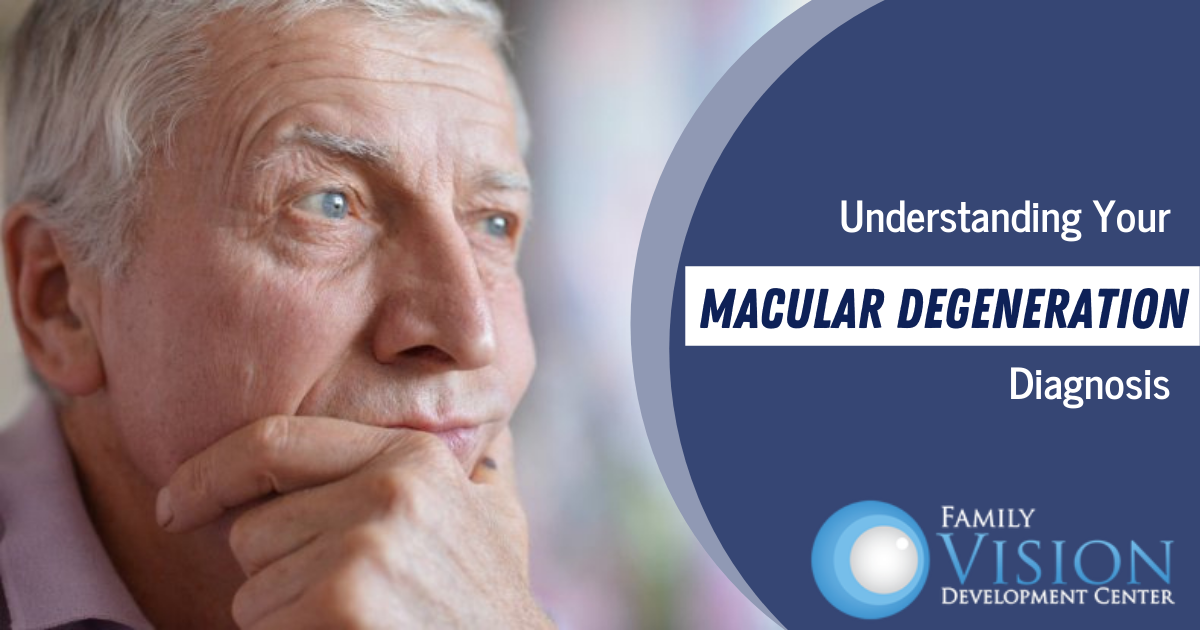Age-related macular degeneration (or AMD) is a leading cause of vision loss among older adults in the United States. In fact, according to the Centers for Disease Control and Prevention (CDC), the number of older Americans who are affected with some form of the disease is expected to double, to 88 million, by the year 2050. If you have recently received a diagnosis of AMD, you are probably concerned about what it actually means to live with this eye condition. In order to alleviate some of that concern, here are some questions you can ask us about during your visit so you know what changes to expect in your daily life.
Is There a Difference Between Wet and Dry AMD?
There is a difference, and it is important to know which form you have been diagnosed with. While a majority of cases are dry, the remaining cases are wet, which is more serious. It is possible to be diagnosed with dry AMD, but progress to wet, which accounts for the most severe cases of vision loss.
What Treatment is Available?
Unfortunately, there is no outright cure for AMD. However, there are many options available to treat the disease which can markedly improve your vision. For instance, dietary supplements, injections and laser treatments have all been shown to be effective forms of treatment. We will thoroughly assess the current progression of your AMD and offer guidance as to which treatment options would be most beneficial.
Is There Anything I Can Do to Slow the Progression of my AMD?
Certain lifestyle changes, like quitting smoking and healthy food options, have been shown to make a difference in terms of AMD progression. Here at Family Vision Development Center, our philosophy of whole body wellness helps us make recommendations to our patients that extend beyond the eyes. This individualized care has proven to be very beneficial to those who are dealing with AMD.
Are There Certain Devices That Can Help Me Live With Vision Loss From AMD?
Daily life can definitely become more challenging when macular degeneration is affecting your vision. However, there are many kinds of helpful low-vision devices, such as magnifiers or telescopic glasses. We are happy to provide information on new technologies and low-vision resources that can make your daily life easier to manage.
Will I Pass it on to My Kids?
AMD can be hereditary, which means your children may have a greater chance of developing some form of macular degeneration as they get older. If you have been diagnosed, we will help you determine, based on your medical history and other factors, if your children are at a higher risk for developing the disease.
Contact Family Vision Development Center at 630-862-2020 to schedule your appointment in our Aurora office. We look forward to helping you work through your concerns about your AMD diagnosis and develop the right tools to manage the disease in your daily life.
Additional information can be referenced here

